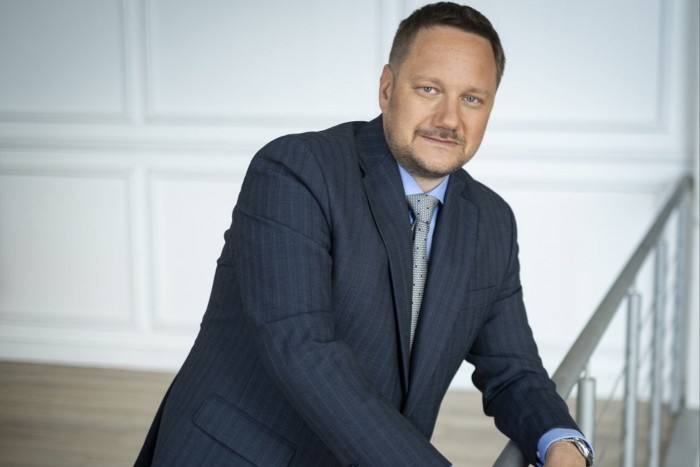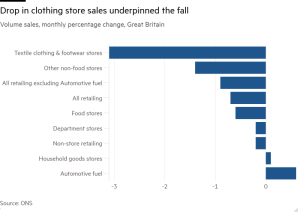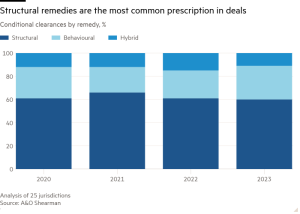Hungarian investors accuse Spain of breaking EU law over rail deal veto

Unlock the Editor’s Digest for free
Roula Khalaf, Editor of the FT, selects her favourite stories in this weekly newsletter.
Hungarian investors have accused Spain of ignoring basic EU freedoms by vetoing their attempt to buy Spanish trainmaker Talgo amid concerns about Budapest’s ties to Russia, but said they were interested in reviving the deal.
The Spanish government in August blocked Hungarian consortium Ganz-MáVag’s €600mn bid for Talgo on “public security and order” grounds.
In his first interview since the veto, Ganz-MáVag chair György Bacsa told the Financial Times: “The Spanish government set aside free enterprise in Europe . . . [especially] the free movement of capital, out of political interests. There is no other way to put it.”
His comments will stoke tensions with Spain as the consortium vows to launch a legal challenge against Madrid’s decision, starting in Spain’s Supreme Court.
The free movement of capital is one of the EU’s four fundamental freedoms — alongside free movement of goods, services and people — but member states can be permitted exemptions on security grounds. Claims that the principle has been breached can be heard at the European Court of Justice.
Spain has classified the documents explaining its decision, but a senior Spanish government official said one concern was that the Russia-friendly government led by Hungary’s hard-right Prime Minister Viktor Orbán would acquire Talgo technology that could instead be useful in Ukraine’s reconstruction after Moscow’s full-scale invasion of the country.

Talgo’s variable gauge system would enable trains to move seamlessly between Ukrainian train tracks and narrower rails in neighbouring European countries.
Bacsa said he had not heard the technology was an issue until the FT reported on it last month. “We are fighting excuses or attacks that we can’t grasp,” Bacsa said. “[The Spanish government] doesn’t share its arguments, and we don’t believe they have any professional or legal arguments . . . We don’t want to forget the Spanish market.”
He said the deal would have given Talgo the potential to expand beyond its traditional western markets into eastern Europe and central Asia: “This would have been a bridgehead for them.”
Bacsa said the Hungarian consortium was ready to move beyond Spain’s “double standards” and try again to seal a deal. “We won’t fight political battles,” he said. “We tabled a professional industrial plan. We remain open to it.”
Spain’s Prime Minister Pedro Sánchez has criticised Orbán as a fan of Russian President Vladimir Putin and said the Hungarian prime minister wanted “to bring Ukraine to its knees”.
Spain’s economy ministry said on Monday: “In strict adherence to the EU legal framework and after thorough analysis, the government determined that [authorising] this operation would have entailed insurmountable risks to national security and public order.”
Orbán’s government has locked horns with EU and Nato partners over its stance on the Ukraine war, with Budapest resisting EU sanctions against Russia.
Hungarian foreign minister Péter Szijjártó hosted a Russian trade forum in Budapest last month, hailing the two nations’ business ties. Following a meeting with his Russian counterpart Sergey Lavrov on the sidelines of the UN General Assembly in September, he praised their bilateral co-operation.
“Russia will always be a part of central European reality, so Hungary cannot afford to give up on these ties,” he told state media.
Ganz-MáVag, which launched the Talgo bid in March, is backed by an investment arm of the Hungarian state that holds a 45 per cent stake in the company and by trainmaker Magyar-Vagon (MáVag), which Spain asserts is “ultimately controlled” by Hungarian oil company MOL.
A MOL subsidiary manages Solva II, the private equity fund that holds the majority 55 per cent stake in the consortium. Bacsa is MOL’s chief operating officer, but he insisted the owners of the fund had “limited influence”.
A state loan backed more than half of the offer, which he said was essential as MáVag was too small to bid on its own.
Solva II’s owners remain hidden, although it has in the past been linked to MOL chair and chief executive Zsolt Hernádi, one of Hungary’s most influential businessmen. Other ventures in the Solva group are owned by Hernádi and his family members.
Bacsa declined to name MáVag’s owners, but said the full list was sent to Spanish authorities. “You will not find any Russian link, any Russian influence there. We cannot imagine what justifies the perceived Russian interest or influence and the resulting security risk.”
He acknowledged MáVag until recently had a Russian business partner: it was co-owner with Russia’s Transmashholding of a rolling stock manufacturer near Budapest until 2022.
“Until May this year, Transmashholding was 20 per cent owned by [France’s] Alstom,” he said. “If doing business with Russians before 2022 makes you [a] Russophile, half of Europe could be called that and excluded from business now. It’s nonsensical . . . a new form of McCarthyism.”
He also said MOL was under no Russian influence and had no major Russian shareholder nor “any exposure that would justify any suspicion”.
But Péter Buda, a security expert working at the Geneva Graduate Institute and a former Hungarian intelligence officer, said Moscow saw rail as a strategic sector.
“Western intelligence agencies co-operate,” he said. “There is a heightened sense among them that Hungary is using its companies to serve Russian strategic interests. Spain must have seen such reports. And the railway sector is seen in Russia as a logistical cornerstone of the military.”
#Hungarian #investors #accuse #Spain #breaking #law #rail #deal #veto



